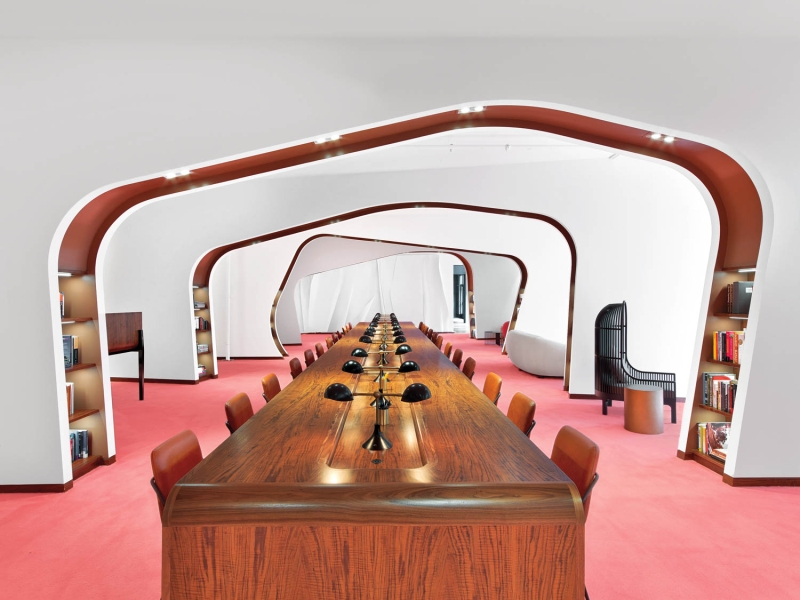Contents
The library at Dropbox San Francisco, 2016. Photography by Eric Laignel.
Call it DNA, call it destiny: David Galullo was fated for a career in design and architecture. Credit his late father, an Italian American builder and visionary who passed on a worldview that became the underpinning of his son’s multidisciplinary practice. “He taught me to see the world as an opportunity for improvement rather than something completed,” begins the consummate professional who, although a licensed architect, does not necessarily call himself such. “I don’t want limits.”
And indeed, there are none—not in the all-encompassing work of Rapt Studio, of which Galullo is founder, CEO, and chief creative officer, nor in its governing principles. He launched the firm in 2011 in San Francisco, heeding the Golden State’s siren call after a childhood in Trenton, New Jersey, followed by a bachelor’s degree from the Syracuse University School of Architecture in New York and early professional experience in Philadelphia. Stints at such Bay Area firms as Pollack Architecture and Gordon Chong + Partners (now Stantec), preceded Rapt, which has since opened two other offices, in Los Angeles and New York, with a total staff of 45. “Design is all about building a story of belonging, about building places where people believe they’re part of something larger than themselves,” Galullo reflects, characterizing Rapt’s germinating idea. “I believe we can move the needle to a better community, to a better future.”
For Galullo, these are not just lofty words. They are commitments Rapt puts into practice from a project’s inception through its design and development phases, all the way to completion. Initial client meetings always begin with a series of probing questions: Why are you different? Why do you matter? Why would the world be a darker place without you? “What we do is build connections—between people, and between a person and their best self,” Galullo responds when, tables turned, he’s asked the same questions. “There are no bad decisions; I’m completely optimistic.” As for his superpower, he again credits his parents: “I can do whatever I put my mind to. I never accept ‘no,’ but I stay humble and curious.” Galullo’s widowed mother now lives with him and his husband Peter King on a 7-acre Sonoma sprawl with chickens, ducks, goats, and vegetable gardens—the perfect setting for the extravagant cooking and entertaining gatherings the extrovert designer delights in hosting.
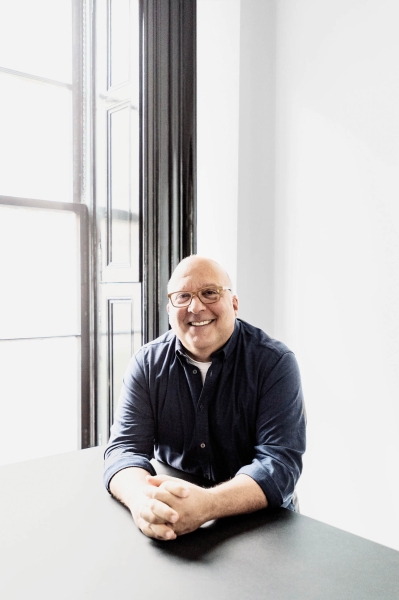
The founder, CEO, and chief creative officer of Rapt Studio at the three-city firm’s Manhattan, New York, office in 2019, shortly before its move to Brooklyn. Photography by Matthew Williams.
Learn How David Galullo’s Rapt Studio Breaks Boundaries
Work is a matter of gathering, too. Each project team assembles talents spanning the full creative spectrum: architecture, design, graphics, branding, marketing, and communications. With no siloing by skill set, everyone has a voice and is free to critique any part of a proposal, not just their area of expertise. This not only results in an integrated response to each brief but also helps shape Rapt’s organization, with its three studios viewed holistically rather than as competing profit centers. “We’re breaking down barriers that other firms may have,” Galullo emphasizes.
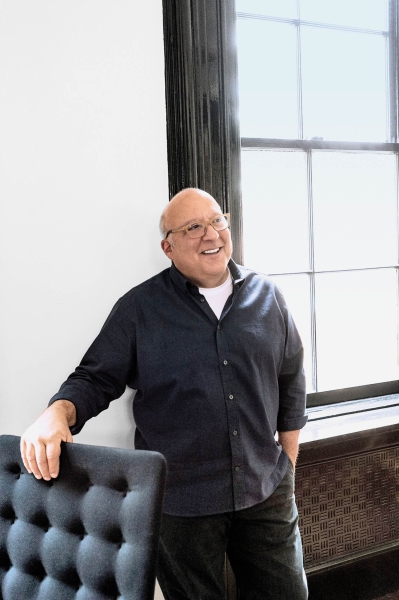
Galullo, at Rapt’s San Francisco studio. Photography courtesy of Rapt Studio.
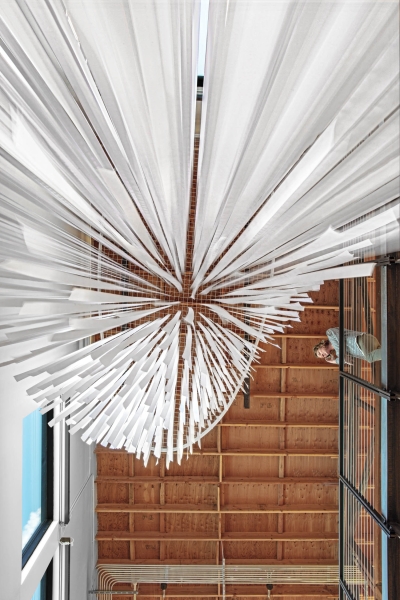
A site-specific installation by Settlers LA at Zefr headquarters in Marina del Rey, California, 2018. Photography by Eric Laignel.
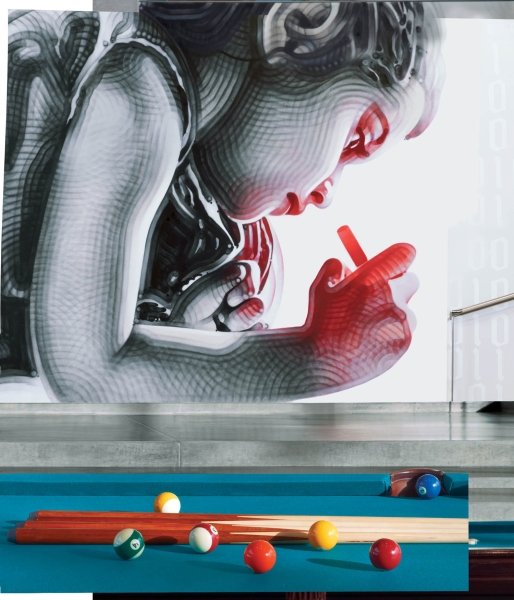
A game area at Adobe’s regional office in Lehi, Utah, 2013. Photography by Eric Laignel.
More than 70 percent of Rapt’s practice centers on the workplace, principally in the gaming, apparel, media, and tech sectors. Its roster of completed projects lists many big names: Google, Goop, The North Face, and Tinder for starters. Current or recently finished assignments include consolidating CNN’s Atlanta operations into longtime-client Warner Bros. Discovery’s seven-building Techwood campus; relocating online gaming enterprise Roblox’s headquarters into a 180,000-square- foot building in San Matteo, California; and having just completed language app Duolingo’s New York offices at 4 World Trade Center, going on to renovate and expand the company’s headquarters in Pittsburgh. Rapt’s global planning for international financial services corporation Macquarie Group supports the company’s real estate operations worldwide, providing local design firms with a template to work from, while for real estate developer Hines, another global enterprise, Rapt crafted regional headquarters at West Edge, a mixed-use development in L.A.
Explore Rapt Studio’s Encyclopedic Portfolio
Rapt’s branding projects range from Bishop Ranch, an idyllic 585-acre business and residential park in San Ramon, California, to Tishman Speyer’s Merge, an amenity-rich, four-building, 5-acre business campus in Seattle. “Things just pop up,” Galullo says of Rapt’s encyclopedic portfolio. How about a kit-of-parts play-book guiding a retail rollout for the California cannabis concern Embarc Dispensaries as a sign of the times?
Segue to another core Rapt capability: interactive installations, exemplified by a pair created for Milan Design Week: The first, 2019’s “Tell Me More,” explored communication and connectivity, guiding visitors through a series of curtain-enclosed, single-person booths glowing in the vaults beneath the city’s main railway station; the second, “Design Is Language: Speak for Yourself,” last spring, featured a carefully curated selection of vintage furniture pieces in what Galullo describes as “a call to action for people to take back design as a tool to tell their unique and personal stories.” It was also a caution about the industry’s rampant, unchecked adoption of AI, which he acknowledges as a useful resource, but fears could lead to bland out- comes lacking distinctive characteristics or narratives.
Galullo is generous in sharing his expertise, contributing articles and interviews to a wide range of outlets, from Fast Company to the BBC World Service. Recent examples include lively discussions of pandemic lessons, return-to-work policies, and a growing focus on neurodiversity. The big takeaway: One size does not fit all.
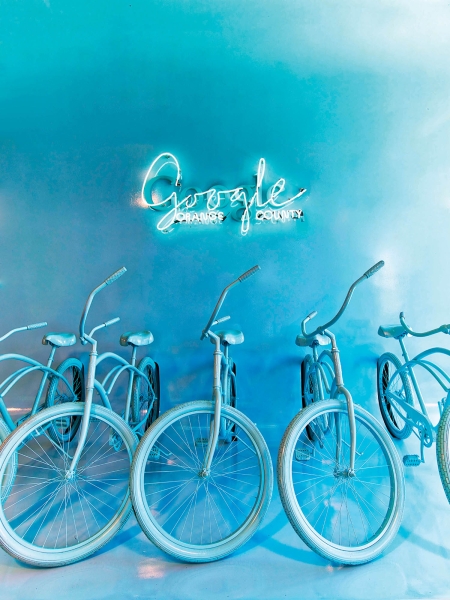
Bike storage at the Google Orange County office in Irvine, California, 2014. Photography by Eric Laignel.
“People are more than their job descriptions,” he says, emphasizing the importance of creating adaptable workplaces that accommodate varied sensory needs and cognitive styles. Galullo’s articulate thoughtfulness has made him something of a media darling, consistently covered over his four-decade career. So, tell us some- thing no one else knows. “I just got my Italian passport,” he gleefully responds. To which we can only reply, in bocca al lupo!—his ancestral homeland’s idiom for good luck.
See Workplace Designs From David Galullo
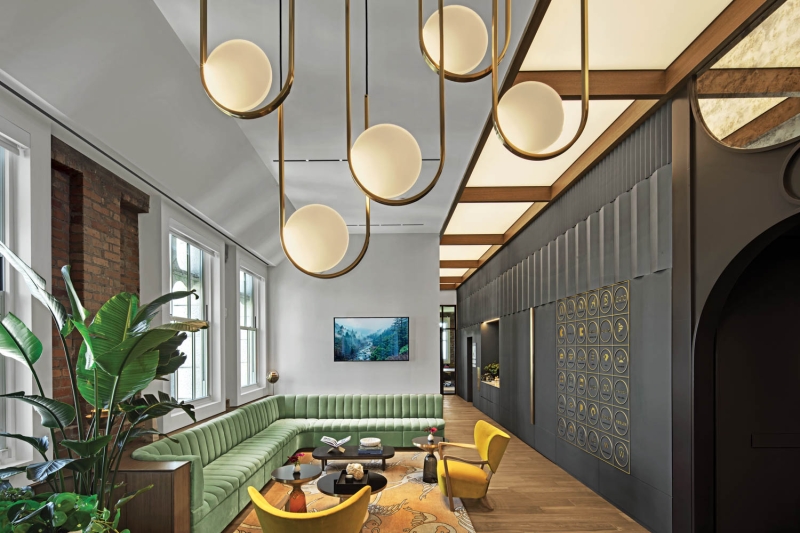
The San Francisco office of Greylock Partners, 2023. Photography by Eric Laignel.
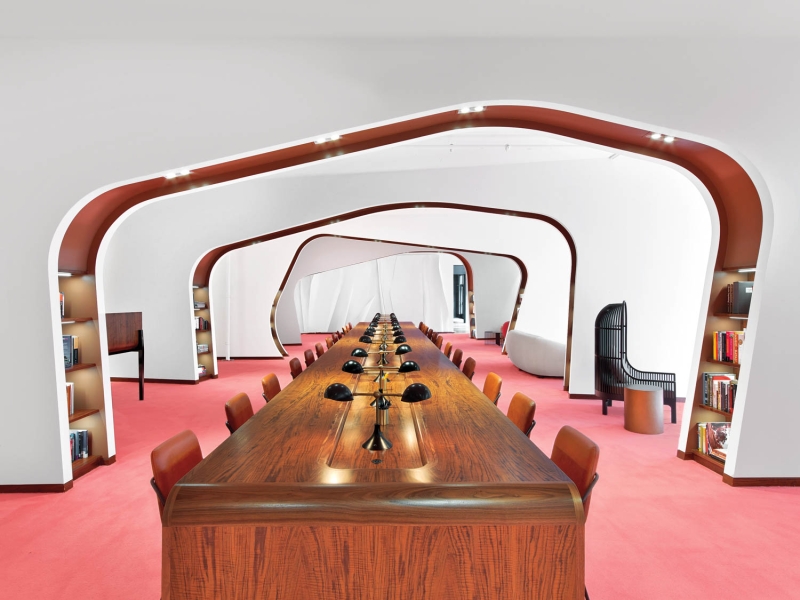
The library at Dropbox San Francisco, 2016. Photography by Eric Laignel.
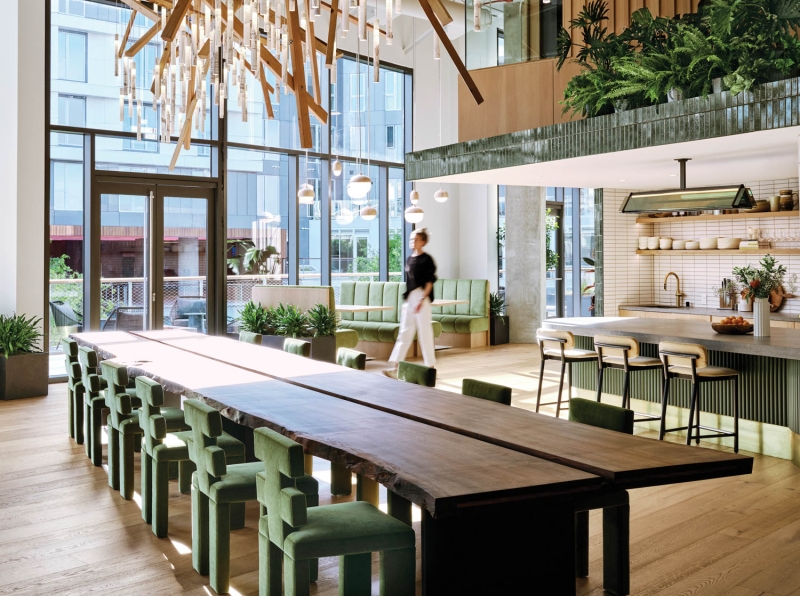
Hines’s regional headquarters in L.A., 2023. Photography by Madeline Tolle.
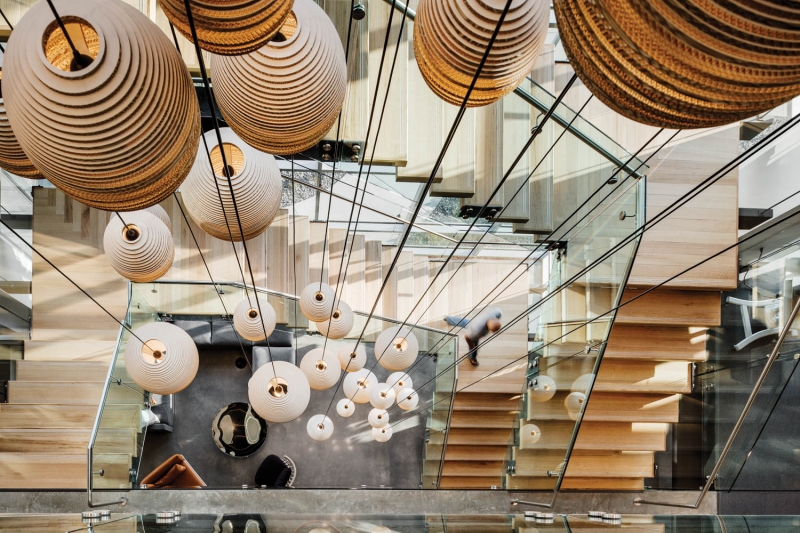
Ancestry’s Lehi, Utah, headquarters, 2017. Photography by Jeremy Bitterman.
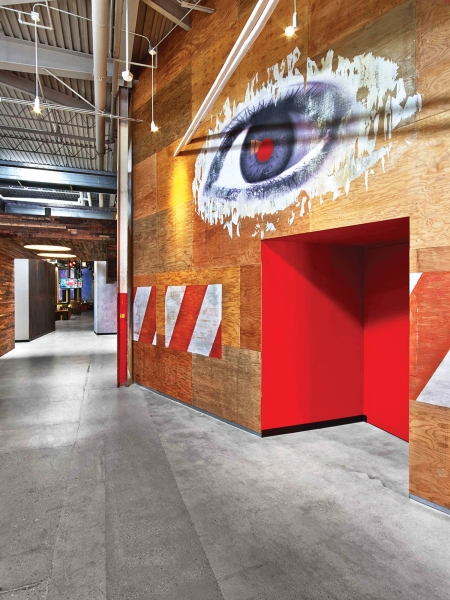
TMZ Studios, 2015, in L.A. Photography byEric Laignel.
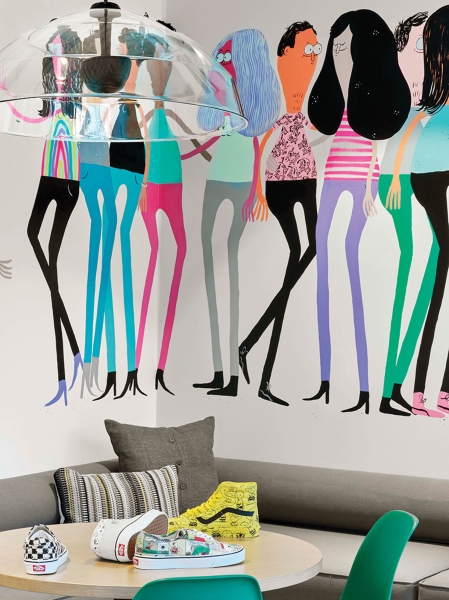
A Jay Howell mural at Vans’s headquarters in Costa Mesa, California, 2018. Photography by Eric Laignel.
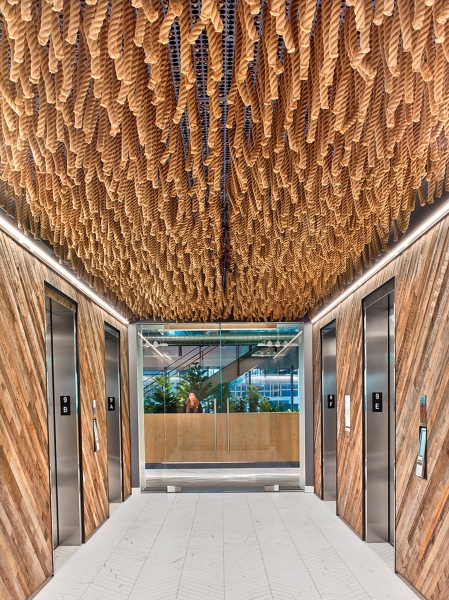
HBO Max’s Seattle office, 2016. Photography by Eric Laignel.
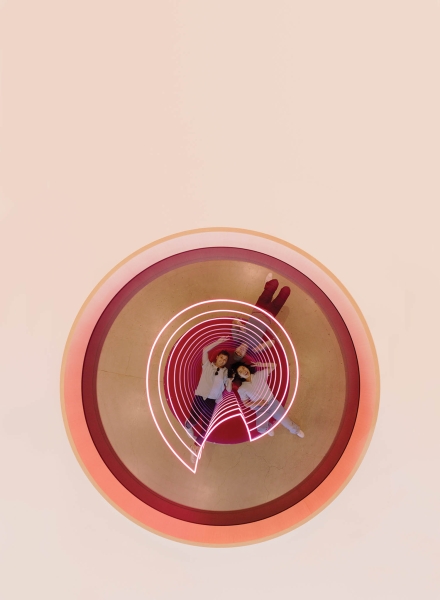
Tinder’s Los Angeles headquarters, 2020. Photography by Madeline Tolle.
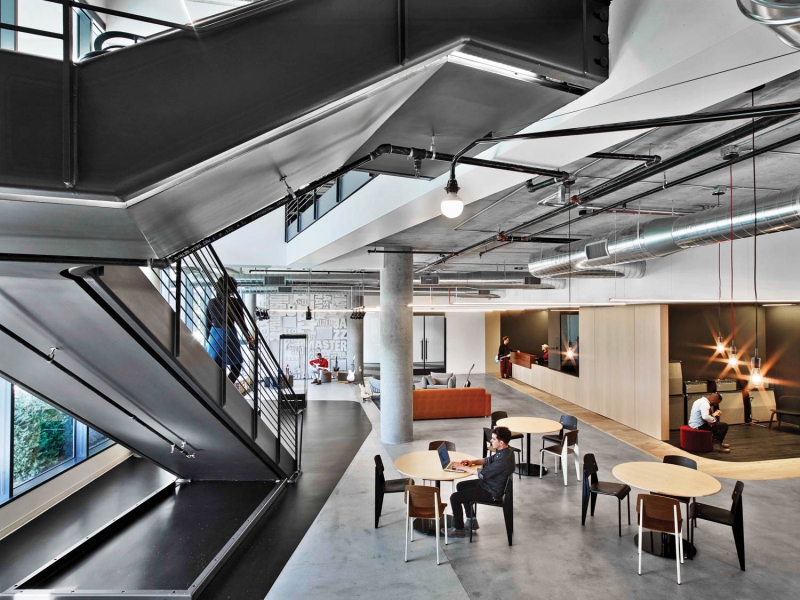
Fender’s San Diego headquarters, 2017. Photography by Eric Laignel.
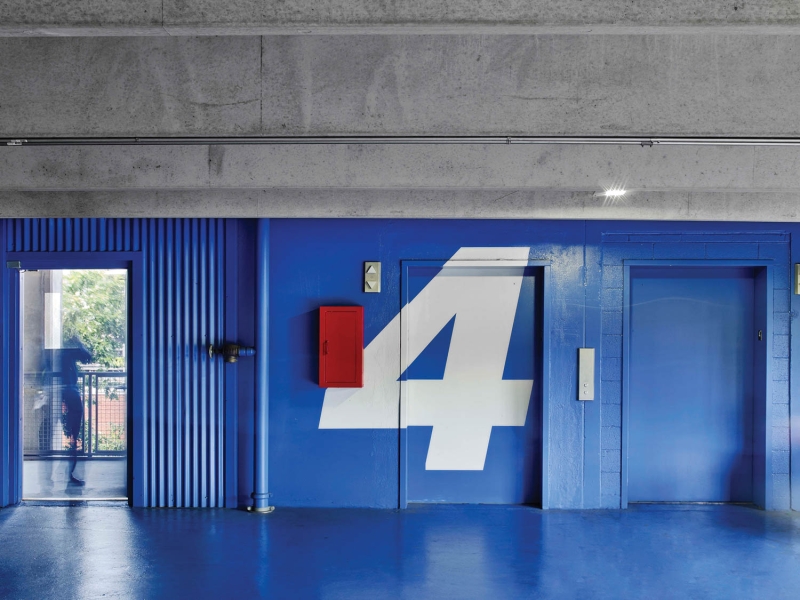
A 2016 parking garage, the first stage of a multiyear renovation of the Warner Bros. Discovery campus in Atlanta. Photography by Eric Laignel.
Discover How Rapt Studio Shapes Top Brands
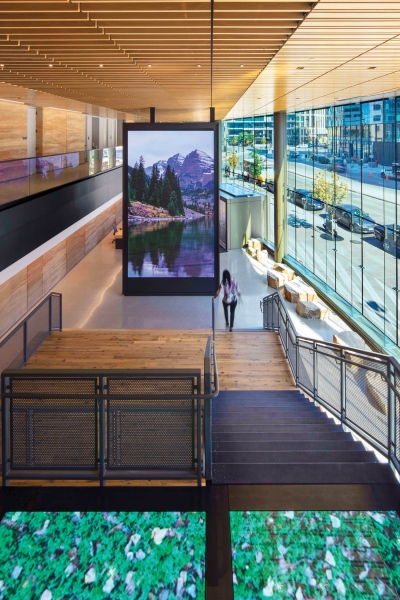
VF Corporation’s 2020 headquarters in Denver; Photography by Eric Laignel.
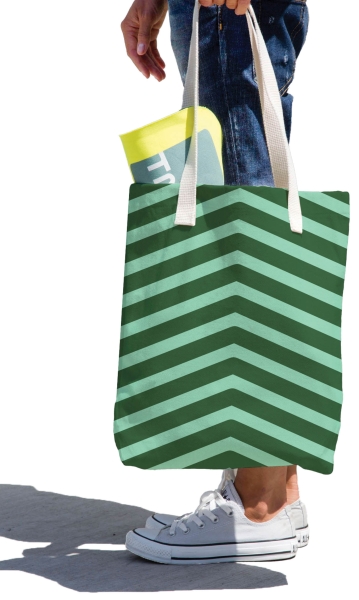
Marketing collateral for The Yards, a multibuilding redevelopment project in Raleigh, North Carolina, 2020. Photography by Sam Grey.
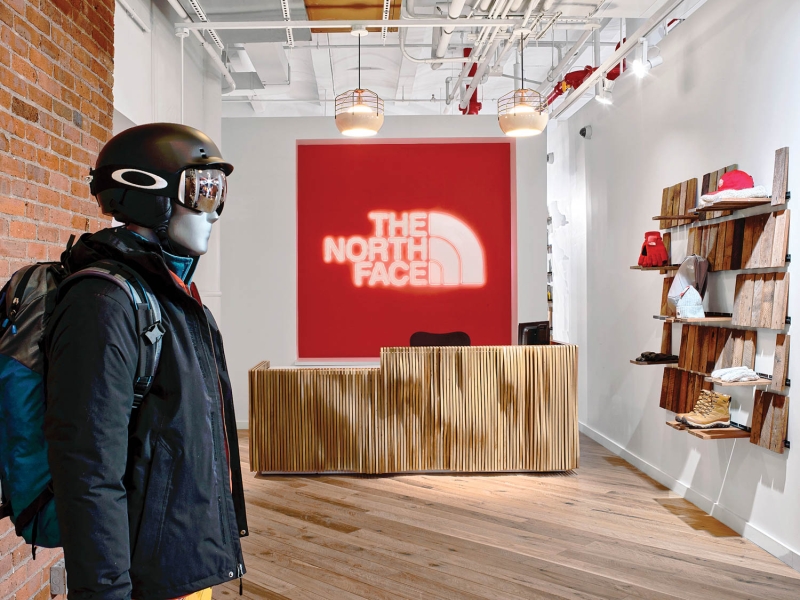
The New York showroom of The North Face, 2017. Photography by Eric Laignel.
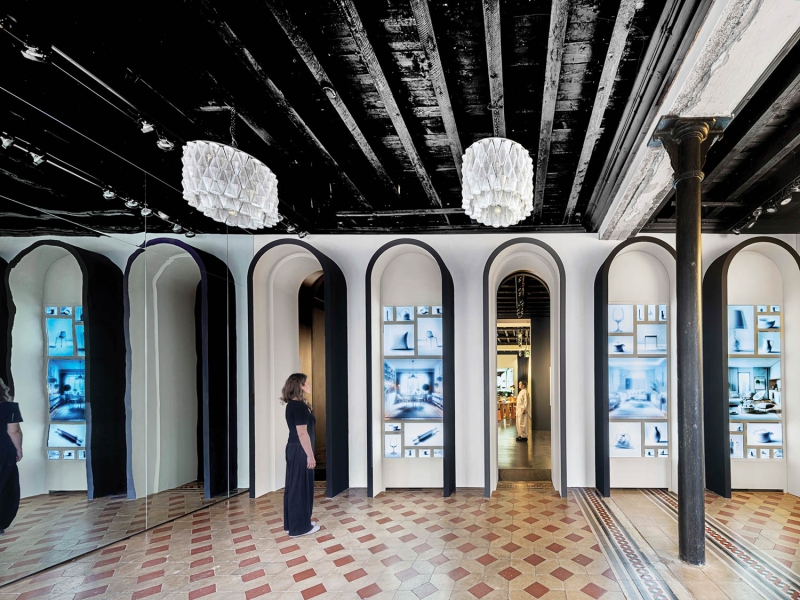
“Design Is Language: Speak for Yourself,” at Milan Design Week 2024. Photography by Eric Laignel.
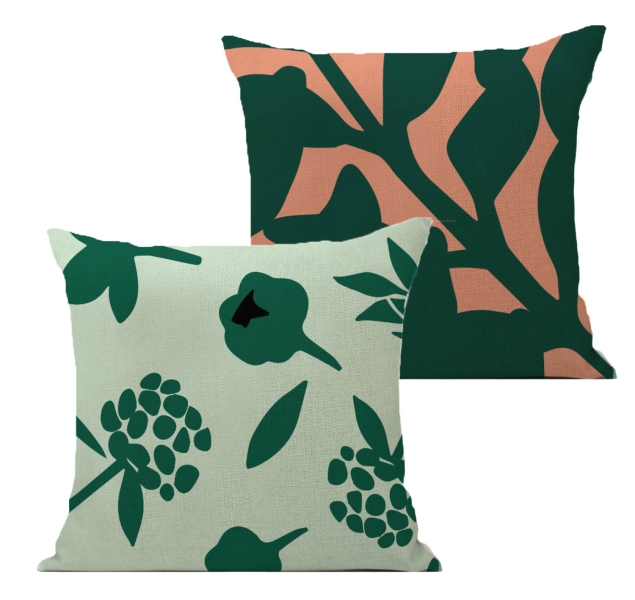
Custom fabric and wallcovering patterns for The Laurel, a 2018 apartment building in San Francisco. Photography by Sam Grey.
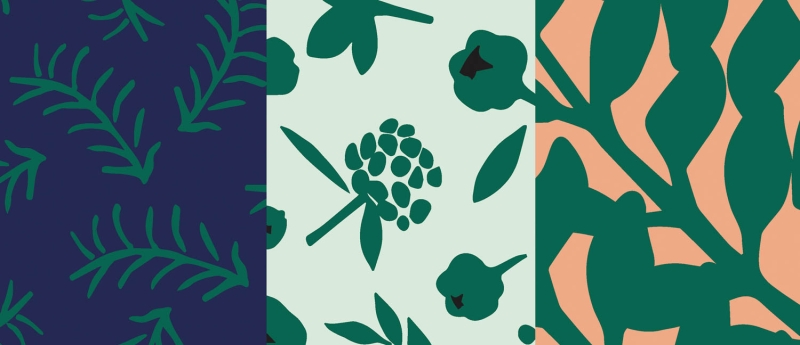
Custom fabric and wallcovering patterns for The Laurel, a 2018 apartment building in San Francisco. Photography by Sam Grey.
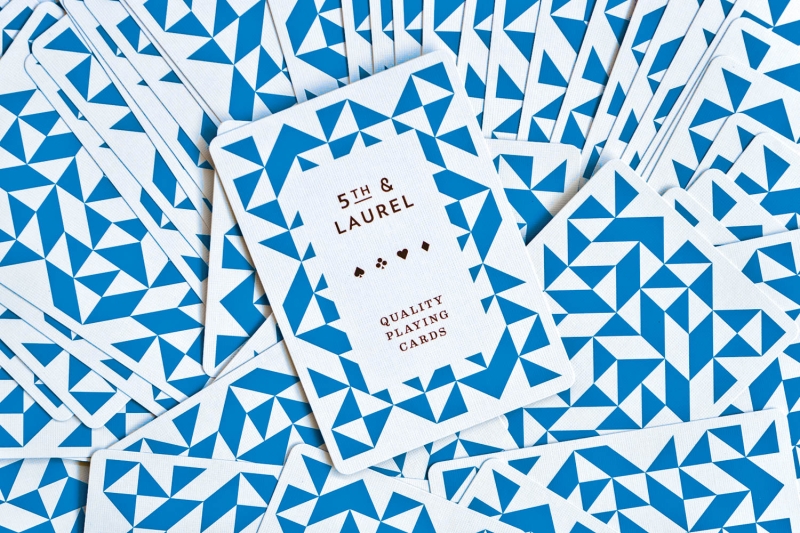
Marketing collateral for 5th & Laurel, an event space in San Diego, 2015. Photography by Sam Grey.

